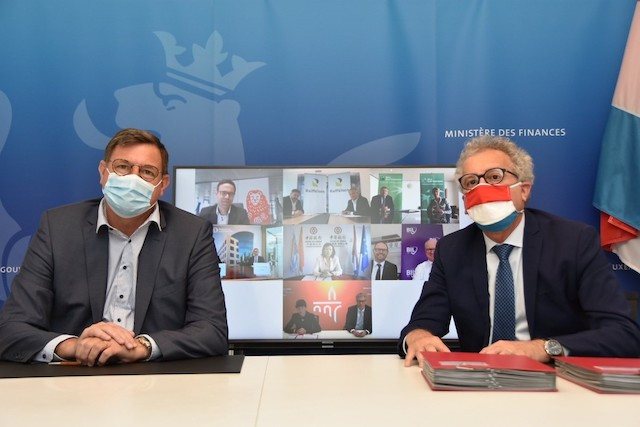The state--under an agreement with Spuerkeess, BIL, Banque de Luxembourg, Banque Raiffeisen, BGL BNP Paribas, ING, Bank of China and Banque BCP--guarantees up to 85% of loans granted under the scheme. The banks cover the remaining 15%.
With 306 loans worth €149.1m granted, the scheme’s uptake is below expectation even as it is set to expire at the end of the year.
“We didn’t expect that it would be used this little,” said Carlo Thelen, director general of Luxembourg’s Chamber of Commerce in an interview. “It’s not at the top of the list of demands,” Thelen said, adding that the scheme was mostly interesting for bigger companies who have run into liquidity problems on larger projects. “There aren’t that many of those at the moment.”
The Chamber of Commerce in April had carried out a survey among businesses, which concluded that only a few companies were planning to make debts and most were looking for aid from the government they would not have to pay back, such as partial unemployment or business grants. “If you don’t know how the economy will turn, you don’t take out a loan,” Thelen said.
The European Commission this month announced that aid programmes by countries to combat the economic downturn caused by the coronavirus could continue into the first half of next year.
The finance ministry is now evaluating whether it will prolong the state-backed loan scheme, Pierre Gramenga (DP) said in response to a parliamentary question. But it won’t be able to simply divert the money to other parts of its rescue package, Thelen explained. “It’s registered like this in Brussels.”
Similarly, a pot of money reserved for money loaned to businesses directly from state coffers is also far from being exhausted. The government had set aside €300m in funding for advance payments, repayable with a fixed interest rate of 0.5%. The government has so far granted 1,694 requests worth €136.3m, a spokesperson said.
A large sum of the €10.4b coronavirus rescue package--which Gramegna has called one of the most generous in Europe--has as a result not yet been tapped. But Thelen said this could turn out to be an advantage for Luxembourg. “There are governments that have already used up all of their firepower,” he said. “For them it will be bitter.”
Bank loans granted in the context of coronavirus but without the backing of the state amounted to €272.6m on 2 October, according to data by financial sector watchdog CSSF. There are 6,600 loan moratorium agreements still active, for an amount of around €1.4b. At the peak in May, banks had put on hold loan repayments worth between €3.6b and €3.7b.
A scheme of loan guarantees backed by the Chamber of Commerce meanwhile--for projects of up to €250,000--has attracted more than 400 companies, Thelen said, for loans worth €16m. Another avenue for loans was the Société Nationale de Credit et d'Investissement, which set aside €600m to cofinance loans under different criteria.
This article was amended on 21 October at 2.50pm to update the amount of state-backed loans and advance payments to the latest figures published on 21 October by the government.
